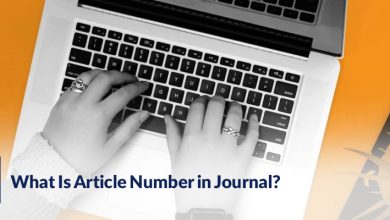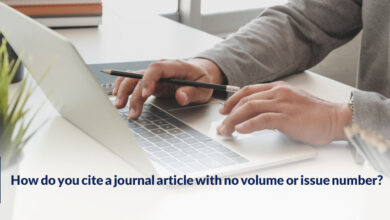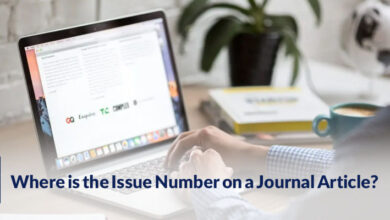Research and Publication Ethics Question Paper

In academia, ethical considerations in research and publication are paramount. Authorship, data integrity, and conflicts of interest are pivotal concerns that demand our attention.
This article provides a research and publication ethics question paper and offers insights through case studies and ethical frameworks.
Whether you are an established academic or a newcomer to scholarly pursuits, join us in this exploration.
Together, we will uphold the highest ethical standards, ensuring that our contributions to the world of knowledge shine with integrity.
What is a research & publication ethics question paper?
A research and publication ethics question paper is a valuable educational tool utilized in academic settings to evaluate individuals’ comprehension of ethical principles within research and publishing.
These papers encompass a variety of scenarios and inquiries designed to challenge participants’ ethical acumen.
They serve as a means of fostering ethical awareness, promoting responsible conduct, and nurturing critical thinking.
Questions may delve into data fabrication, safeguarding participant confidentiality, and navigating conflicts of interest.
Students and researchers enhance their ethical decision-making abilities by tackling these difficulties, ensuring academic integrity.
Such assessments are integral in cultivating a community of ethical scholars.
Why is it important to read research and publication ethics question papers?
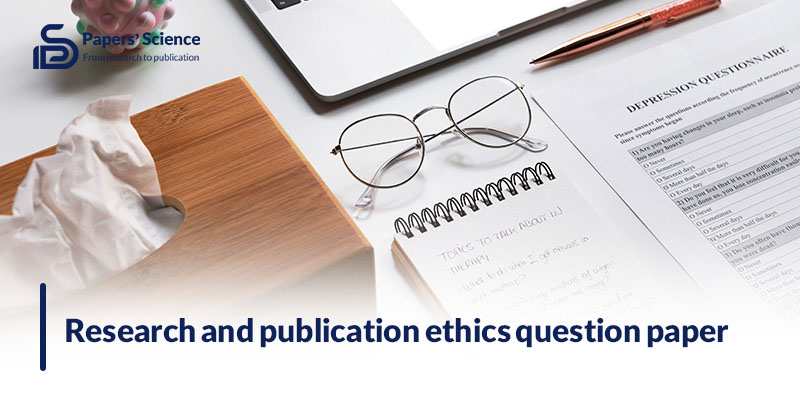
Reading research and publication ethics question papers is essential for several compelling reasons.
1. Firstly, these papers serve as ethical compasses, guiding researchers through the labyrinth of academic integrity. They illuminate the intricate web of authorship, data handling, and conflicts of interest, ensuring scholars tread ethically.
2. Secondly, they provide critical insights into real-world ethical dilemmas, offering practical lessons that transcend the classroom. These papers equip academics with the wisdom to navigate ethical minefields with finesse by dissecting case studies and ethical frameworks.
3. Ultimately, engaging with research and publication ethics question papers is an investment in upholding research integrity, safeguarding reputations, and fostering a community of ethical scholars.
Ethical concerns in the academic world
Ethical concerns have long been intertwined with the fabric of academia. In the pursuit of knowledge, scholars and researchers must navigate a complex web of ethical considerations that can shape the trajectory of their careers and the integrity of their work.
These concerns are far from static, evolving with technological advances, academic culture changes, and shifting societal norms.
Here, we provide you with some of the research and publication ethical concerns in the academic world, highlighting their significance and impact:
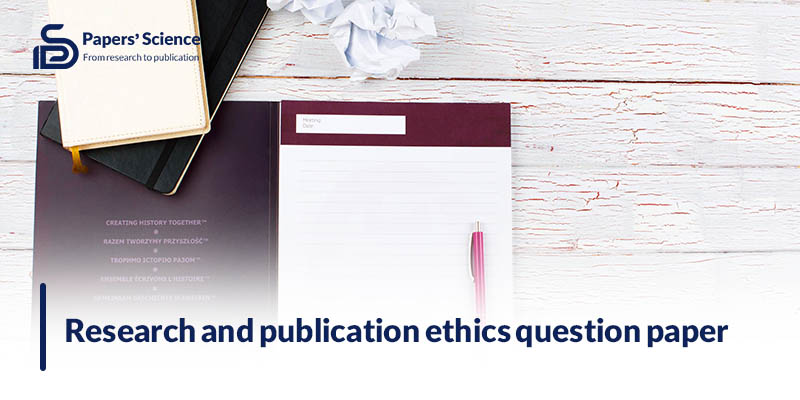
1. Plagiarism
Plagiarism, the act of using someone else’s work without proper attribution, remains a pervasive ethical concern in academia. It undermines the core principles of originality and intellectual integrity.
Instances of plagiarism can irreparably damage an academic’s reputation and credibility, making it imperative for scholars to uphold rigorous standards of citation and attribution.
2. Authorship & collaborative research ethics
The collaborative nature of research can lead to complex questions surrounding authorship. Determining who deserves credit for a research project is a nuanced ethical matter.
Failure to attribute authorship fairly can result in disputes and mistrust among colleagues. The academic community relies on clear guidelines and open communication to address authorship disputes ethically.
3. Data falsification & manipulation
Data is the lifeblood of research, and its integrity is paramount. Ethical concerns arise when researchers engage in data falsification or manipulation to support their hypotheses or conclusions.
Such misconduct undermines individual researchers’ credibility and threatens scientific knowledge’s foundation.
4. Conflicts of interest
Conflicts of interest can arise when researchers have financial, professional, or personal interests that could compromise the objectivity of their work.
Ethical guidelines require disclosing potential conflicts to maintain transparency and trust in the research process. Failure to do so erodes confidence in academic findings.
5. Research on human subjects
Human subject research raises profound ethical questions regarding the treatment and consent of participants.
Researchers must ensure their subjects’ physical and psychological well-being while obtaining informed consent.
Violating these ethical principles can result in severe consequences for researchers and institutions.
6. Ethical challenges in emerging technologies
As technology advances, new ethical challenges emerge. Issues like privacy concerns in data collection, the ethics of artificial intelligence, and the responsible use of emerging technologies in research demand ongoing attention and ethical scrutiny.
7. Academic integrity & cheating
Maintaining academic integrity is crucial, not only for individual students but also for the credibility of academic institutions.
Ethical concerns encompass plagiarism, cheating on exams, and submitting falsified work. Upholding the principles of fairness and honesty is essential in nurturing a culture of trust and academic excellence.
Recap
Nowadays, where knowledge is both a treasure and a responsibility, addressing ethical concerns in the academic world cannot be overstated.
From plagiarism to conflicts of interest, these issues are not mere abstractions but the very threads that weave the fabric of scholarly integrity.
The conscientious use of research and publication ethics question papers can serve as our guiding compass, illuminating the path to ethical conduct in academia.
Read More: 3 authors in text citation apa

What ethical concerns resonate with you the most? Share your thoughts in the comments below.

